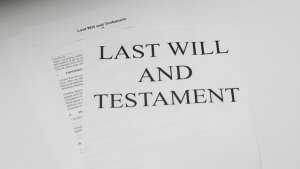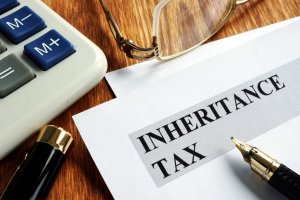How to Claim for an Unclaimed Estate

Contact
Table of Contents
Finding beneficiaries for unclaimed assets
The amount of unclaimed assets has nearly doubled in the last year, with the Prince of Wales, via the Duchy of Lancaster and the Duchy of Cornwall, receiving in excess of £3million and the Treasury receiving in excess of £33million of unclaimed estates under the rules of intestacy.
To find beneficiaries for unclaimed assets, you can follow these steps:
- Start by checking public records such as death certificates, wills, and probate records to identify potential beneficiaries. You can search these records on government websites.
- Contact financial institutions, such as banks, insurance companies, and investment firms, to inquire about any unclaimed assets they may be holding for the deceased. They may be able to provide information on named beneficiaries or heirs.
- You can place an advertisement in newspapers and online to seek out potential beneficiaries. This can be particularly helpful if the deceased had no immediate family or if their whereabouts are unknown.
- There are several government resources available that can help you find potential beneficiaries, such as the Bona Vacantia list in the UK
- Related reading: What to Do When Someone Dies
What is Bona Vacantia?
Bona Vacantia is Latin for ‘ownerless goods’. Under a combination of common law and statute dating back to the Middle Ages, the estates of people who die without a Will or heirs pass to the Crown or to the Government. The Bona Vacantia list is a public record of unclaimed estates in the UK that have no known living heirs. You can search the list on the government’s website.
According to www.uar.co.uk, a database which allows users to search the unclaimed assets register, there are:
-
£ 15 billion in unclaimed assets;
-
£1billion in unclaimed NS&I products;
-
£400million in unclaimed bank and building society accounts;
-
£ 400 million in unclaimed pension and life policies.
The Treasury Solicitor’s Department of the UK Government investigates unclaimed estates and receives approximately 2000 new cases each year. Each week advertisements about such estates are placed in the national and local press and on their website www.bonavacantia.gov.uk. If no heirs are found the Treasury collects in the estate assets, which amounts to approximately £ 10 billion per year.
Heir hunters scour the lists and advertisements published by the Treasury Solicitor and then try to track down heirs to the unclaimed estates. The BBC1 daytime program ‘Heir Hunters’ features genealogists researching unclaimed estates and tracing potential heirs, but they have been severely criticised for deducting costs and commissions of up to 40% of the value of the inheritance for each beneficiary, and for failing to provide beneficiaries with information about the deceased and the estate to enable beneficiaries to make their own enquiries.
How to find out the value of an unclaimed estate
To find out the value of an unclaimed estate, follow these steps:
- Check if the estate has been published on the Bona Vacantia list.
- If the estate is on the Bona Vacantia list, you can contact the Treasury Solicitor’s Office, which is responsible for dealing with unclaimed estates. They can provide you with information about the estate, including its estimated value.
- If you know the name of the deceased, you can search for their probate records, which will include details of their assets and the value of their estate. You can search for probate records on the government’s website.
The value of an unclaimed estate can vary widely, depending on the assets and debts of the deceased. It’s also important to be aware that claiming an unclaimed estate can be a complex and time-consuming process, and it’s advisable to seek professional advice if you’re considering making a claim.
To speak with one of our Estate Administration Solicitors, contact us by:
- Filling in our online enquiry form; or
- Calling us on 020 7485 8811
Share this article
Speak to us about claiming inheritance
Call us 020 7485 8811
Email us Send us an email and we’ll get back to you
Wills and Probate News and InsightsVIEW ALL
- 9.6.2023
High profile probate dispute of Vladimir Scherbakov
Probate dispute of Russian billionaire’s missing will You’d imagine a wealthy businessman with assets in different countries would...
Read more - 22.5.2023
Case Law: Dementia-Induced Mild Cognitive Impairment
Introduction Dementia is a harsh reality for increasing numbers of families. Sadly, it means the disputed wills solicitors at Osbornes...
Read more - 26.4.2023
German Court Rules on EU Succession Regulation
Succession laws vary from country to country which historically made the administration of cross-border estates potentially complex. Since 17 August 2015, the...
Read more - 16.3.2023
Are trusts protected from divorce?
Can trusts protect an inheritance from your spouse? A trust is a separate legal entity. Neither spouse owns its assets....
Read more - 1.3.2023
How to prevent someone contesting a will
It is fairly rare in my experience for a parent to write a child out of their will but that...
Read more - 8.2.2023
Gifting Property to Children
Can I gift property to my children? Gifting a property to your adult children is a relatively complex transaction but...
Read more - 15.11.2022
Contentious Probate Case Studies
Contentious probate involving business assets Our contentious probate solicitors act for the defendants to a claim issued to pronounce in...
Read more - 27.10.2022
Contesting A Will Case Studies
Will dispute on grounds of lack of capacity Our contesting a will solicitors acted for the claimants, the adult daughters...
Read more - 2.8.2022
Do you need to register your trust?
The Trust Register was introduced in 2017 as part of anti-money laundering regulations. Previously, only trusts with a UK tax liability...
Read more - 19.7.2022
Beware of appointing your children as executors
Avoiding Family Conflicts in Estate Administration Where tensions exist between family members, making your children the executors of your will...
Read more - 19.1.2022
Is Jersey part of the UK for probate...
Partington v Rossiter If you own assets in more than one country, it’s important to make a robust Will...
Read more - 1.1.2022
How to Divide Assets in a Blended Family
In this article we look a scenario for someone who is making a will where they are married with children...
Read more - 18.11.2021
Deputy Disputes
Disputes between a deputy and family Disputes between a deputy and the family of the individual concerned, can escalate and...
Read more - 18.11.2021
Particularly sensitive issues around mental capacity
Mental capacity, the right to sex and the carer’s risk of prosecution Does everyone have the right to a...
Read more - 25.10.2021
Inheritance Claims CFA Success Fee Judgment
The Court of Appeal upholds the recoverability of CFA success fees in 1975 Act claims. An individual who claims reasonable provision...
Read more - 20.10.2021
Evidence Needed When Contesting A Will
‘Scrap King’ Multi-million Inheritance Dispute Confirms the High Standard of Evidence Needed to Contest a Will Gary Goodwin, son of...
Read more - 20.10.2021
Dispute Surrounding Interpretation of Will
The ‘nil rate band’ offers an incentive to testators to make their will in a tax-efficient manner, maximising the amount...
Read more - 20.10.2021
Handwriting Expert Witness Concludes Will Forgery
Successful contesting a will claim following testimony of handwriting expert It’s not unheard of for an individual to forge...
Read more - 20.10.2021
Understanding Testamentary Capacity
What is testamentary capacity? Testamentary capacity refers to a person’s legal and mental ability to create a valid will....
Read more - 20.10.2021
Unsuccessful Inheritance Act Claim
The case of Shearer v Shearer The recent reported case of Shearer v Shearer highlights that adult children cannot expect...
Read more - 13.9.2021
Worldwide Probate Dispute
Considerable wealth and assets all over the world The deceased died in Ireland leaving very considerable wealth and assets all...
Read more - 13.9.2021
Estate administration with a value of £6million
International estate valued at £6m In this international probate case, we are acting for the executors in an estate administration...
Read more - 13.9.2021
International probate involving 17 properties
International Estate Administration Osbornes Law represented the administrator of this international estate where the deceased was domiciled in India. Ongoing...
Read more - 13.9.2021
Complex Probate Involving 4 Wills: Case Study
Complex Probate Involving Four Separate Wills Introduction to the Case The case study relates to complex probate involving four separate...
Read more
























